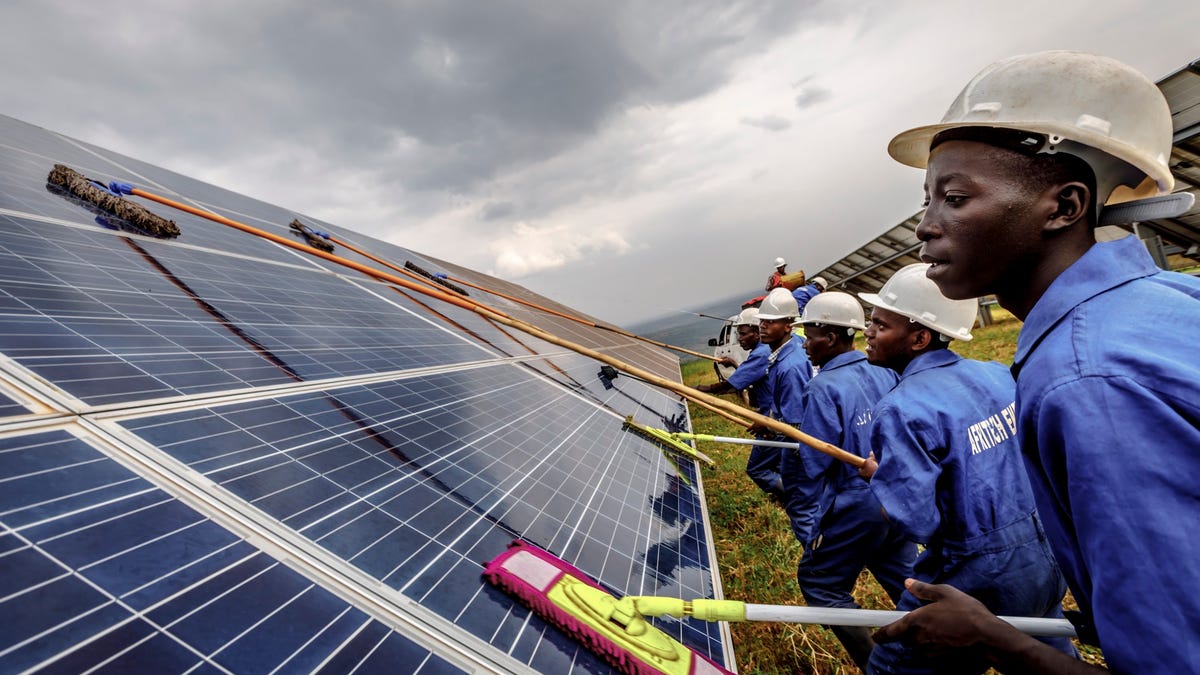The Step-by-Step Guide to Commercial Solar Power: What Businesses Need to Know in Fort Lauderdale
The Step-by-Step Guide to Commercial Solar Power: What Businesses Need to Know in Fort Lauderdale
Blog Article
Why Solar Energy Installment Is the Smart Option for Your Home or Business
The decision to mount solar energy in your house or service is progressively acknowledged as a tactical investment, driven by a mix of economic incentives and environmental factors to consider. With the potential for considerable power financial savings, coupled with government rewards, the first prices can be offset considerably. Welcoming solar energy not just boosts your property's worth yet additionally adds to an extra lasting future. Nonetheless, the effects of this selection extend past simple expense savings and appearances, motivating a more detailed assessment of the more comprehensive advantages and possible difficulties connected with solar energy fostering.
Financial Financial Savings and Incentives
Purchasing solar energy installments can dramatically minimize energy expenses for property owners and businesses alike. By harnessing power from the sun, homes can generate their very own power, bring about considerable financial savings on regular monthly energy expenses. Oftentimes, these financial savings can balance out the preliminary installment prices within a few years, supplying an attractive return on financial investment.
In addition, many financial rewards exist to urge solar fostering. Federal tax obligation credit histories, such as the Financial Investment Tax Credit Score (ITC), allow property owners and organizations to subtract a significant portion of solar installment prices from their government taxes. solar photovoltaic. Lots of states and neighborhood governments also provide refunds, gives, or performance-based incentives, further improving the cost of solar systems
Funding alternatives, including solar fundings and leases, are readily available to reduce the in advance economic burden. Through these arrangements, residential property owners can spread out the price of installment with time, often paying less than their previous electrical energy costs.
Additionally, the boosting worth of buildings equipped with solar systems makes them a lot more attractive in the property market. In general, the financial benefits of solar power installments are engaging, making them a smart investment for the future.
Environmental Impact and Sustainability

Moreover, solar installations can reduce dependence on non-renewable sources, such as coal and gas, which can result in habitat damage and air pollution via extraction and combustion processes. By transitioning to solar power, property owners and organizations proactively join decreasing their carbon footprint, promoting a much healthier ecosystem.
Additionally, the manufacturing of solar panels has become much more effective and much less dangerous to the setting for many years. Numerous suppliers are currently devoted to making use of lasting methods, consisting of recycling materials and reducing waste.
Energy Independence and Security
Achieving power freedom via solar energy setups equips people and communities to lower their dependence on imported fossil gas. This change not only improves local energy security yet additionally maintains power expenses in time. With solar power, homeowners and businesses can generate their very own power, minimizing the effect of varying power rates driven by international markets.
Solar setups provide a lasting option that helps buffer versus geopolitical tensions and supply chain disruptions connected with nonrenewable fuel source dependence. By using sunshine, neighborhoods can grow a self-dependent energy structure, ensuring regular accessibility to power despite exterior elements. This freedom cultivates financial resilience, as power production ends up being local, keeping even more funds within the community.
Additionally, the transition to solar power adds to grid stability. Distributed planetary systems can ease tension on standard power grids, minimizing the likelihood of power outages throughout peak demand periods. As even more entities embrace solar innovation, the cumulative shift in the direction of eco-friendly power resources magnifies the total security of the power landscape. Eventually, welcoming solar power not only promotes private and neighborhood empowerment yet likewise supports national objectives for a lasting and dependable power future.

Technological Advancements in Solar
Advancements in solar technology are transforming the means energy is utilized and utilized, better supporting the energy self-reliance attained through solar installations. Developments in photovoltaic or pv (PV) cells, particularly the development of bifacial panels, permit boosted power capture by soaking up sunshine from both sides. This modern technology boosts efficiency and takes full advantage of power outcome, making solar installments more effective than ever.
Furthermore, enhancements in energy storage space remedies, such as lithium-ion batteries, offer homeowners and companies the ability to keep excess energy produced throughout height sunlight hours. This ability makes sure a consistent power supply throughout durations of reduced sunlight, enhancing energy dependability and lowering reliance on the grid.
Smart inverters have actually likewise arised as an essential component of modern planetary systems, giving real-time surveillance and optimization of power use (solar photovoltaic). These systems allow individuals to manage their power intake wisely, causing minimized costs and improved performance